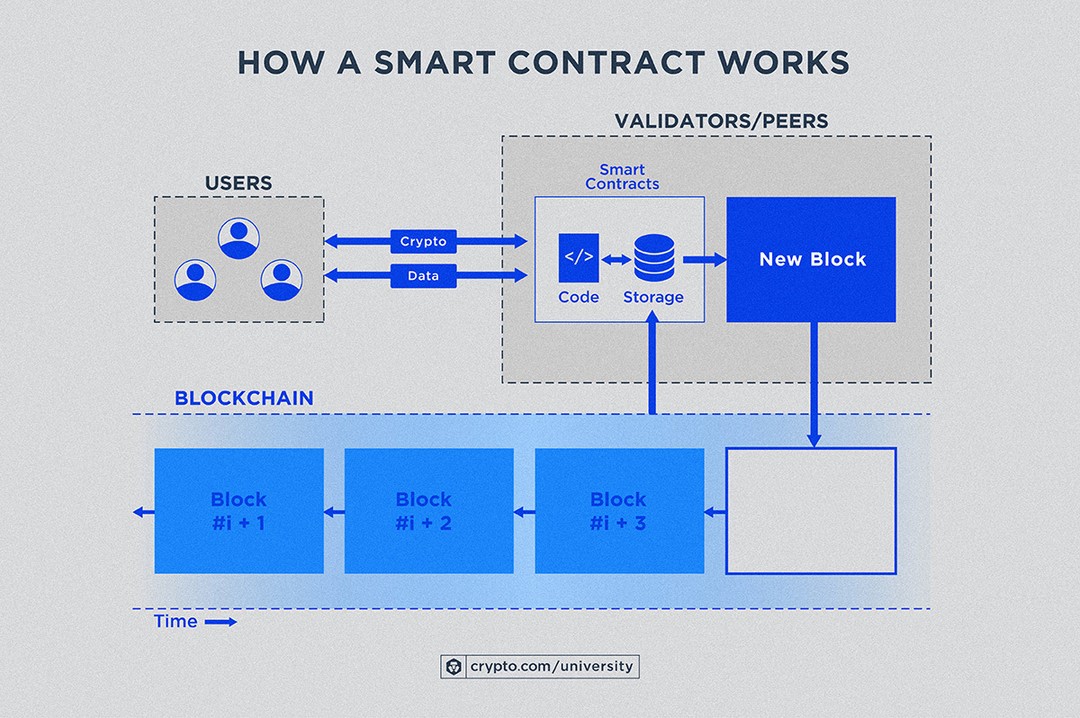Revolutionizing Business Processes: Harnessing The Power Of Smart Contracts
Revolutionizing Business Processes: Harnessing the Power of Smart Contracts

- Navigating The Wild West Of Crypto Trading: A Beginner’s Guide To Safe Trading With Stop Loss Orders
- Unlock The Secret To Free Crypto: A World Of Endless Possibilities
- Crypto Portfolio Management Made Easy: Top Tools To Succeed
- Embracing The Future Of Digital Identity: A Guide To Decentralized Solutions For Enhanced Privacy
- Unlocking The Secret To Hands-Free Investing: Crypto Trading Bots
As businesses continue to evolve in the digital age, process automation has become an essential component of success. One technology that has gained significant traction in this space is smart contracts. These self-executing contracts with the terms of the agreement written directly into lines of code have the potential to transform the way businesses operate. In this article, we’ll delve into the world of smart contracts and explore how they can be leveraged to automate various business processes.
What are Smart Contracts?
Smart contracts are computer programs that execute automatically when specific conditions are met. They are stored and replicated on a blockchain, a decentralized network of computers that ensures the integrity and transparency of transactions. This technology allows for the creation of trustless, tamper-proof, and transparent agreements that can be enforced without the need for intermediaries.
How Can Smart Contracts Automate Business Processes?
Smart contracts can be used to automate a wide range of business processes, including:
- Supply Chain Management: Smart contracts can be used to track the movement of goods, verify authenticity, and ensure compliance with regulations.
- Payment Processing: Smart contracts can facilitate automatic payments when specific conditions are met, eliminating the need for intermediaries and reducing transaction costs.
- Contract Management: Smart contracts can automate the negotiation, execution, and enforcement of contracts, reducing the need for lawyers and other intermediaries.
- Inventory Management: Smart contracts can be used to track inventory levels, automate reorder points, and optimize stock levels.
Implementing Smart Contracts for Business Automation
Implementing smart contracts for business automation requires a combination of technical expertise, business acumen, and strategic planning. Here are some steps to consider:
- Identify Business Processes to Automate: Start by identifying business processes that are ripe for automation. Look for processes that are repetitive, time-consuming, and prone to errors.
- Choose a Blockchain Platform: Select a blockchain platform that supports smart contracts, such as Ethereum or Hyperledger Fabric.
- Develop a Smart Contract: Develop a smart contract that outlines the terms and conditions of the agreement. This will require a programming language such as Solidity or Java.
- Test and Deploy: Test the smart contract thoroughly to ensure that it functions as intended. Once tested, deploy the smart contract on the chosen blockchain platform.
Benefits of Using Smart Contracts for Business Automation
The benefits of using smart contracts for business automation are numerous. Some of the most significant advantages include:
- Increased Efficiency: Smart contracts can automate business processes, reducing the need for manual intervention and increasing efficiency.
- Reduced Costs: Smart contracts can reduce transaction costs, eliminate the need for intermediaries, and minimize the risk of errors.
- Improved Transparency: Smart contracts are stored on a blockchain, providing a transparent and tamper-proof record of transactions.
- Enhanced Security: Smart contracts are encrypted and protected by advanced cryptography, making them virtually unhackable.
Smart contracts have the potential to revolutionize the way businesses operate. By automating business processes, reducing costs, and improving transparency, smart contracts can help businesses stay ahead of the competition. As the technology continues to evolve, we can expect to see even more innovative applications of smart contracts in the business world. Whether you’re a seasoned entrepreneur or just starting out, it’s time to explore the possibilities of smart contracts for business automation.
